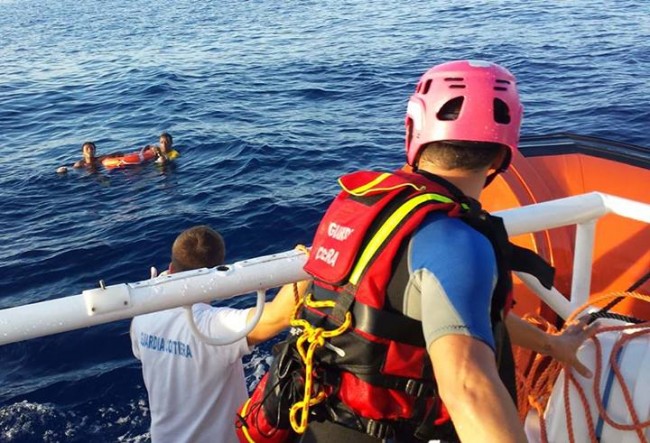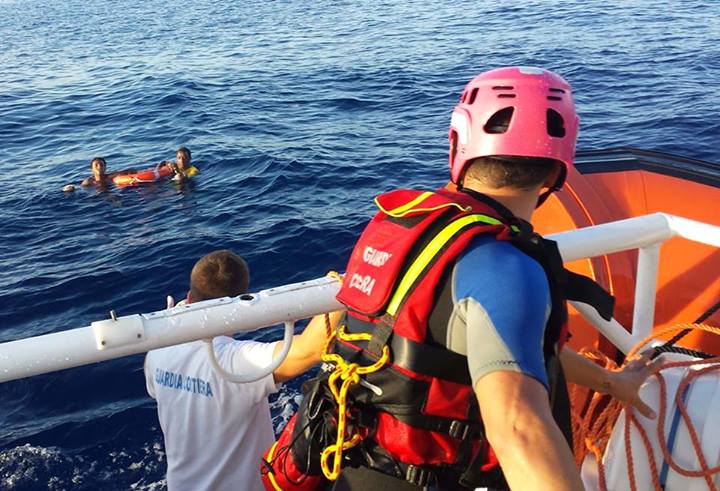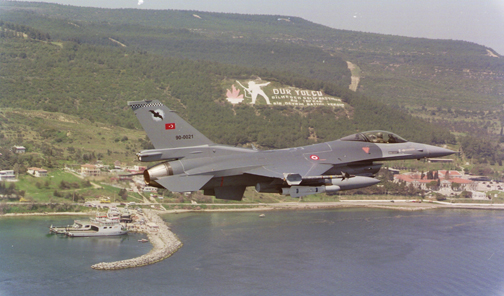Europe struggles to welcome refugees, including Syrians (Maj)

(BRUSSELS2) Only 30.000 refugees have been taken in from Syria out of the two million who have fled the country since the conflict, Europe is not generous. It's the least we can say. The European Union refuses for the moment to open the temporary protection clause, making it possible to welcome on its soil a larger number of refugees. There is currently no "massive influx" and nothing that justifies opening this clause explained until recently, the spokesperson for the Commissioner for Home Affairs, Cecilia Malmström. The drama of Lampedusa - and its approximately 300 shipwrecked and deceased people - seems however to open the eyes a little on the drama not only of the Syrians but of the refugees that the "fortress" Europe rejects from its shores. The President of the European Commission, José-Manuel Barroso, has decided to make the "pilgrimage" to Sicily to pay tribute to the victims, at the request of the Italian government (a one-day national mourning has been decreed ).
Germany and Sweden, more generous
However, in 2012 Syrians became the most numerous nationality group to have applied for and obtained refugee status in Europe. Of the 18 Syrians who obtained the status in 700, more than 2012/2 are registered in two Member States: Germany (3) and Sweden (8). But the “small” countries are not left out: 400 refugees welcomed in Cyprus, 5 in Belgium, 000 in Denmark, 564 in Austria. Besides, France and its 595 Syrians who have received asylum seeker status pales in comparison. At the time, there were barely a million refugees. And since then the situation has worsened on the ground.
Syrian boat people
Today there are more than 2 million refugees registered by international organizations. The countries close to Syria — Turkey, Jordan, Lebanon are suffocating. Syrians have also arrived in Egypt in large numbers (UNHCR counts nearly 120.000). Many are beginning to try their luck to reach the European continent by boat. The Bulgarian and Romanian coastguards, countries bordering the Black Sea, are seeing more and more small boats arriving off their coasts loaded with what they consider to be illegal immigrants. " In the past 40 days, around 3300 Syrians, including 230 unaccompanied children, have arrived in Italy, mainly in Sicily explained the spokesperson for the High Commissioner for Refugees (UNHCR) to journalists.
Willing countries
Faced with this influx, several countries have announced that they want to welcome more refugees. After being a little dragged out, Germany offered 5.000 places to the UNHCR for people who need “special protection”. Finland could welcome 1000, Austria 500, etc. Sweden has announced, it is the first country to have done so, to grant asylum to all Syrian applicants. And France? 700 asylum applications have been submitted since the beginning of the year, announces the Ofpra, the French Office for the Protection of Refugees and Stateless Persons. Quite weak for a country that is asserting itself at the forefront of the fight against Bashar's regime...
For a conference on refugees
However, each European country responds in dispersed order, according to a national agenda. No coordination has taken place at European level. At least for now. And very few politicians raise the issue. In the European Parliament, during the debate on Syria, until recently, only the Liberal Democrat group and the Greens had openly raised the subject. " We can and must do more now for those trapped in dire conditions near Syria's borders said former Belgian Prime Minister Guy Verhofstadt, leader of the Liberals and Democrats. It is necessary " urgently convene a humanitarian conference in order to reach an agreement on the granting of temporary protection to refugees fleeing the conflict”. A resolution to this effect should be voted by the European Parliament meeting in plenary in Strasbourg this week (details on the Club). And the Ministers of the Interior and of Justice will openly take up the subject this Tuesday in Luxemburg. Lampedusa effect!
(update) A very European question
On the Belgian side, we have already reacted through the voice of the Minister of Foreign Affairs. “The events in Lampedusa have a European dimension. They tragically underline the need for a comprehensive, united and balanced European immigration policy. The control of the external borders is only one of the elements of this policy. explained Didier Reynders. “The Union must prevent the repetition of such tragedies, in particular by fighting more firmly against the criminal networks which exploit the distress of migrants, by developing programs to improve living conditions in the regions of origin, and by strengthening its dialogue and cooperation with countries of origin and transit. »
(Nicolas Gros-Verheyde)
NB: this article was published in Ouest France in a first version


